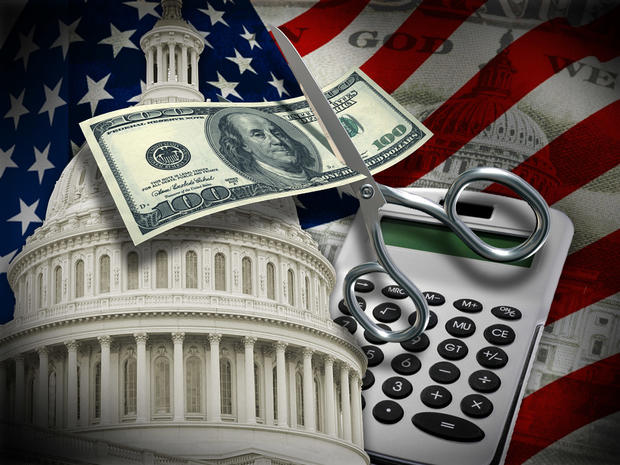Congress set to pass payroll tax cut, unemployment benefits
The House and Senate are set to act on a deal that extends the payroll tax holiday and unemployment insurance as early as tomorrow. Congressional negotiators signed off on the $150 billion package today that would extend the program and tax cut through the end of the year.
The deal also tackles other pending issues in need of resolution: It prevents doctors who treat seniors on Medicare from seeing a nearly 30 percent pay cut from the federal government at the end of this month.
"At the end of the day, we're ahead of our deadline and we got something done in a bipartisan-bicameral way" said negotiator Rep. Greg Walden (R-OR) on his way into an ornate room off the House floor to officially sign the agreement.
The leaders of the conference committee, Rep. Dave Camp (R-MI) and Sen. Max Baucus (D-MT), smiled broadly and even joined hands and raised them in the air as if they'd just won a boxing match as they watched members come to sign off on the agreement.
Sen. Max Baucus said, nearly shouting, "Working together!" which is something that the two lawmakers have had little success with lately having served on both the President's debt commission and the failed deficit reduction committee, also known as the "super committee."
The payroll tax break, which gives workers a 2 percent tax break, benefits 160 million working Americans with the average worker getting a $1000 tax break for the year. The extension will add $100 billion to the deficit after Republicans agreed that the payroll tax extension did not have to paid for with cuts elsewhere in the budget - a major concession for House Republicans who've insisted for months that any extension not add to the deficit.
In exchange, Republicans secured key concession on unemployment insurance. The maximum number of weeks unemployed Americans would be able to receive benefits is 73, which is fewer than the current maximum of 99 weeks in states with unemployment rates of 9 percent and higher.
Republican lawmakers also demanded change to how unemployment insurance is administered. In the deal, states would be able to require drug testing for anyone looking for work. It also would make it federal law that beneficiaries must be looking for work while receiving benefits.
To pay for the $30 billion cost of extending federal unemployment benefits, the federal government to auction off wireless spectrum. It would also require new federal workers to contribute more to their federal pensions than current federal workers.
A tougher provision that would require current federal workers to contribute more to their pensions threatened to derail talks Wednesday when negotiators, including Sen. Ben Cardin (D-MD), who represents a large number of federal workers, protested and fought for existing federal workers to be exempt.
Cardin's objections carried weight, especially after negotiators realized that the three Senate Republicans would oppose the conference agreement because they were largely excluded from negotiations. With all three Republicans refusing to sign the agreement, every Democratic vote was necessary for approval.
As part of the effort to secure Cardin's support, President Barack Obama called the senator twice.
"What survived is additional contributions for new hires" Cardin said today after signing the agreement. "I'm disappointed about that, but we did protect current workers."
As for the cost of preventing a cut in federal reimbursement for doctors who treat Medicare patients, it would be covered by cutting parts of the President's health care law, including a wellness prevention fund and reimbursements for hospitals who treat Medicare patients that don't pay their bills.
The House is expected to easily pass the bill. Its passage is also likely in the Senate though there could be some hurdles trying to get enough Senate Republican support.
"I have a simple message for my Republican colleagues" Senate Majority Leader Harry Reid (D-NV) told reporters late Thursday. "Let's get this done as quickly as possible."
Lawmakers plan to begin a week-long recess for President's Day Friday.

